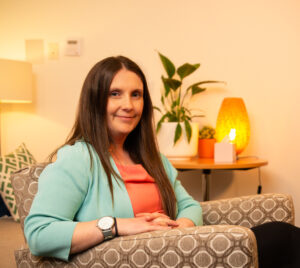Jemima Koles | Psychologist
BSc(Psych), PGDipPsych, MPsych (Ed & Dev), Educational and Developmental Psychologist, MAPS
I have worked in private practice as a registered Psychologist since 2013, during which I have gained experience supporting a broad range of challenges life can present.

Jemima Koles | Psychologist
- Trauma and Complex Trauma – EMDR (Eye Movement Desensitization and Reprocessing)
- Autism Spectrum
- ADHD
- Neurodiversity
- Learning difficulties
- Relational trauma
- Anxiety
- Borderline Personality Disorder (BPD)
- Parenting
- Relationship difficulties
- Social anxiety
- School anxiety
- Depression
- Highly sensitive people
- Obsessive compulsive disorder (OCD)
- Supervision (Educational and Developmental endorsement)
An interview with Jemima Koles
How did you decide to become a psychologist?
I became a psychologist because I really wanted to get an understanding of why people do what they do. I love sitting down and chatting with people, getting to understand what’s going on for them and helping them work through any difficult things that are happening in their life.
What are you passionate about in Psychology?
I had to think about this one and quite a few things came to mind. I’m really passionate about neurodiversity, social anxiety and also obsessive compulsive disorder.
What gives you a sense of satisfaction?
I really love when a client has what I call an ‘aha moment’. So they’re in the session and it’s like a light bulb goes on in their mind. And they can see, ‘Oh, that’s what’s happening or that’s why I’m doing what I’m doing’. That gives me a big sense of satisfaction when I’m working with a client. And also when I start to see either the child or the person that I’m working with, starting to feel like they’re in control of what’s happening in their life again.
What can a client expect in their first session?
In the first session, we’re going to start off just talking about confidentiality. We’re really just going to be getting to know each other in that session, talking about some background information about what’s going on, getting some more understanding of what the problem is, seeing if we’re a good fit for each other as well. And finishing up I really like to be able to give someone a strategy to take away so that might be a breathing exercise or something that’s going to help them with what’s happening for them at the time.
